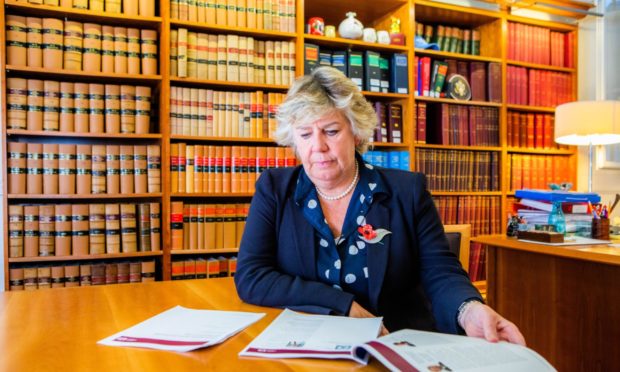A judge says she clarified a key court order in the Alex Salmond case in order to remove “any slight risk of misinterpretation”.
Lady Dorrian said her amendment, which was confirmed last week following a legal challenge by The Spectator magazine, aimed to “highlight the scope of the order while maintaining the necessary protection” for complainers who made allegations.
The High Court ruling was viewed last week as a “step forward” by Mr Salmond’s camp and some members of the Holyrood committee investigating the Scottish Government’s handling of harassment allegations against the former first minister.
It could lead to a fresh attempt to publish a key submission from Mr Salmond, and pave the way for him to give evidence in person to the inquiry.
Reacting to the statement, The Spectator said: “We welcome Lady Dorrian’s written judgment today which confirms that – as we always believed – the court had no intention of obstructing a legitimate parliamentary inquiry established to investigate government behaviour and hold it to account.
“We believe there is no reason why all key and relevant evidence should not now be published.”
The Holyrood committee was set up after Mr Salmond received a £512,000 pay-out following the Court of Session civil ruling that the Scottish Government’s handling of the complaints was “unlawful” and “tainted by apparent bias”.
Last week Judge Lady Dorrian told a hearing at the High Court in Edinburgh she would add “as such complainers in those proceedings” to the contempt order relating to the criminal trial.
The former first minister was cleared of 13 charges, including sexual assault, indecent assault and attempted rape, following a trial at the same court last year.
‘There should be no confusion about the matter’
Outlining the reasons behind her decision on Tuesday, Lady Dorrian said the original prohibition in the order was designed to protect the identity of those who were complainers in the criminal proceedings, and to prevent the publication of information that might identify them as having been complainers in the case.
She believed the original wording was “clear” that it was designed to prevent publication of details that could identify them as the “persons against whom the offences alleged in the trial are said to have been committed”.
The judge said: “There should be no confusion about the matter.”
But she added: “However, I recognised that a reputable journal and responsible senior counsel have suggested otherwise, and that any slight risk of misinterpretation could readily be addressed by the addition of a few words to the order, which the Crown did not oppose.”
She said she did not consider that adding the words “in connection with these proceedings” would achieve the stated aim, but actually “ran the risk of actually creating confusion and of diminishing the protection of complainers”.
Instead, she said: “I considered that the addition of the words ‘as such complainers in those proceedings’ would serve to highlight the scope of the order whilst maintaining the necessary protection for complainers.
“I agreed therefore to vary the order to that extent.”
MSPs on the committee investigating the Scottish Government’s handling of the allegations against Mr Salmond will meet on Wednesday to discuss the judgement.

